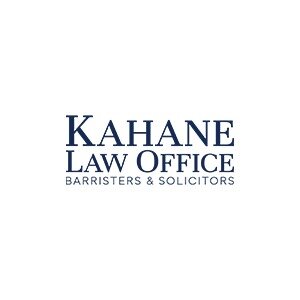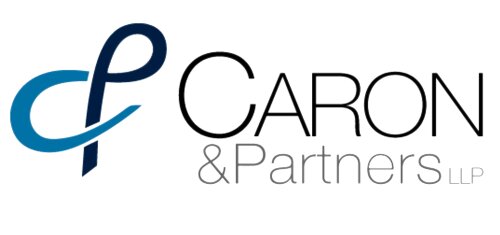Best Art & Cultural Property Law Lawyers in Calgary
Share your needs with us, get contacted by law firms.
Free. Takes 2 min.
List of the best lawyers in Calgary, Canada
About Art & Cultural Property Law in Calgary, Canada
Art & Cultural Property Law in Calgary, Canada, encompasses a diverse range of legal issues related to the creation, acquisition, ownership, protection, and repatriation of artworks and cultural heritage. This legal field addresses the complexities of intellectual property rights, provenance research, export controls, and museum collections. Legal professionals in this area work to navigate Canadian laws and international treaties to protect and preserve cultural properties and ensure rightful ownership and transfer of artworks.
Why You May Need a Lawyer
There are several common situations where individuals or organizations might require legal assistance in Art & Cultural Property Law:
- Buying or Selling Art: Navigating the intricacies of purchasing or selling art involves contracts, provenance issues, and due diligence.
- Museum or Gallery Collections: Legal guidance is often needed to ensure that acquisitions, loans, and exhibitions comply with both national and international laws.
- Provenance Disputes: Legal intervention can be necessary to resolve disputes over the rightful ownership of artworks, especially where historical transactions, theft, or forgery is concerned.
- Import and Export Controls: Understanding and complying with laws regarding the import and export of cultural property are crucial to avoid legal penalties.
- Repatriation of Cultural Objects: Legal expertise is often necessary for negotiating the return of cultural property to its place of origin.
- Intellectual Property Rights: Artists and creators may need assistance protecting their intellectual property against unauthorized use or replication.
Local Laws Overview
The laws relevant to Art & Cultural Property in Calgary involve a mix of federal statutes and provincial regulations. Key legal frameworks include:
- Cultural Property Export and Import Act: Governing the certification required for exporting cultural property and preventing illegal importation.
- Copyright Act: Protects the rights of creators in their works and provides legal remedies against infringement.
- Alberta Heritage Act: Concerned with the preservation and protection of the province's historical resources.
- UNESCO Conventions: International treaties play a significant role in issues related to cross-border movements of cultural properties.
Frequently Asked Questions
What is provenance, and why is it important?
Provenance is the history of ownership of an artwork or cultural object. It is crucial in establishing authenticity, legality of title, and value.
How can I export cultural property from Canada legally?
You need to obtain a permit under the Cultural Property Export and Import Act before exporting certain cultural items from Canada, depending on their age, origin, and value.
What are the rights of artists under the Canadian Copyright Act?
Artists have rights including reproduction, distribution, and public performance of their works. They may also benefit from moral rights that protect their work's integrity.
How can museums protect their collections legally?
Museums can employ measures such as due diligence in acquisitions, proper documentation, securing loan agreements, and ensuring compliance with laws and ethical guidelines.
When can cultural property be repatriated?
Repatriation occurs under conditions like ownership disputes, evidence of theft, or international agreements. Legal negotiations often precede repatriation.
What can I do if I suspect an artwork is forged?
Consulting a legal expert, conducting a provenance investigation, and seeking expert authentication are essential steps to address suspected forgery.
Can artists enforce their moral rights in Canada?
Yes, artists can enforce their moral rights, which include the right to integrity and authorship, and can seek legal remedies against alteration or misattribution.
Are there limitations on the use of public domain artworks?
Public domain artworks can generally be used freely in Canada, but it is important to ensure that any adaptations or derivative works respect existing copyright laws.
What should be included in a sale contract for artworks?
A sale contract should include details about the artwork, payment terms, warranties, provenance, and any conditions for transfer of ownership.
How do international treaties affect cultural property law in Canada?
International treaties, like UNESCO conventions, inform national legislation and facilitate international cooperation in the protection and restitution of cultural property.
Additional Resources
Those seeking more information or assistance can consult the following resources:
- Canadian Heritage Information Network (CHIN): Offers resources related to the Canadian conservation and cultural property sector.
- The Canadian Artists’ Representation (CARFAC): Provides guidance and advocacy for artists in Canada.
- Alberta Museums Association: Supports museums in Alberta with best practices and professional development resources.
- Justice Canada: Provides general information on laws and justice in Canada, including cultural property law.
Next Steps
If you require legal assistance in Art & Cultural Property Law in Calgary, consider the following steps:
- Research Legal Specialists: Identify lawyers or law firms in Calgary specializing in Art & Cultural Property Law.
- Consult Legal Professionals: Arrange consultations to discuss your specific needs and obtain legal advice tailored to your situation.
- Gather Documentation: Prepare all necessary documents and evidence related to your legal issue, such as provenance records and contracts.
- Consider Mediation or Arbitration: Explore out-of-court resolution options to resolve disputes efficiently.
- Stay Informed: Keep abreast of developments in relevant laws and their implications on your rights and responsibilities.
Lawzana helps you find the best lawyers and law firms in Calgary through a curated and pre-screened list of qualified legal professionals. Our platform offers rankings and detailed profiles of attorneys and law firms, allowing you to compare based on practice areas, including Art & Cultural Property Law, experience, and client feedback.
Each profile includes a description of the firm's areas of practice, client reviews, team members and partners, year of establishment, spoken languages, office locations, contact information, social media presence, and any published articles or resources. Most firms on our platform speak English and are experienced in both local and international legal matters.
Get a quote from top-rated law firms in Calgary, Canada — quickly, securely, and without unnecessary hassle.
Disclaimer:
The information provided on this page is for general informational purposes only and does not constitute legal advice. While we strive to ensure the accuracy and relevance of the content, legal information may change over time, and interpretations of the law can vary. You should always consult with a qualified legal professional for advice specific to your situation.
We disclaim all liability for actions taken or not taken based on the content of this page. If you believe any information is incorrect or outdated, please contact us, and we will review and update it where appropriate.











